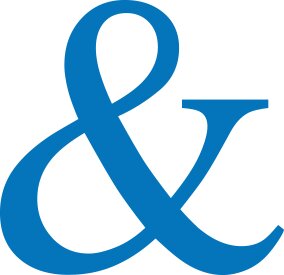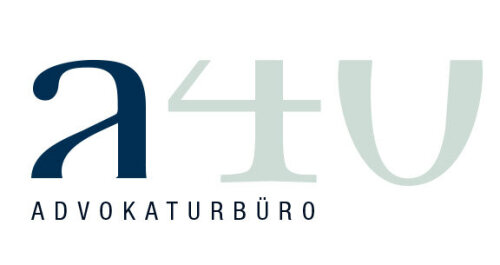Best Lawsuits & Disputes Lawyers in Bern
Share your needs with us, get contacted by law firms.
Free. Takes 2 min.
List of the best lawyers in Bern, Switzerland
About Lawsuits & Disputes Law in Bern, Switzerland
Lawsuits and disputes in Bern, Switzerland, revolve around the resolution of disagreements between two or more parties which can include individuals, organizations, or government entities. The Swiss legal system is characterized by its civil law framework, where litigation is often seen as a last resort, favoring mediation and arbitration where possible. Swiss courts are known for their efficiency, transparency, and impartiality, with a structured approach to handling legal disputes. This landscape creates an environment conducive to a clear and predictable resolution of disputes.
Why You May Need a Lawyer
There are several situations where individuals or organizations in Bern may require the help of a lawyer specializing in lawsuits and disputes:
- Contract Disputes: When there's a disagreement over the terms or execution of a contract.
- Corporate Litigation: Involving disputes related to business operations, including shareholder and partnership conflicts.
- Property Disputes: Such as disagreements over property boundaries, leases, or sales transactions.
- Employment Disagreements: Cases involving issues like wrongful termination, discrimination, or workplace harassment.
- Family Conflicts: Including divorce settlements, child custody, or inheritance issues.
- Accidents and Personal Injury: Situations involving compensation claims due to accidents or negligence.
Local Laws Overview
The legal framework for lawsuits and disputes in Bern is largely influenced by federal Swiss laws, though cantonal provisions can also be significant. Key aspects include:
- Civil Procedure Code (CPC): Governs the process of civil litigation, including rules for filing cases, conducting trials, and appealing decisions.
- Swiss Code of Obligations (CO): Covers contract law, including the rights and duties of parties involved.
- Federal Act on Private International Law (PILA): Important for cases involving cross-border disputes.
- Alternative Dispute Resolution (ADR): Encourages mediation and arbitration before proceeding to court.
- Court System: Comprises Cantonal Courts for most local disputes, with the Federal Supreme Court as the highest legal authority for appeals.
Frequently Asked Questions
What is the process for initiating a lawsuit in Bern?
To initiate a lawsuit, one needs to file a formal complaint with the appropriate cantonal court. The process begins with a written statement detailing the claim and the evidence supporting it.
How can mediation help in resolving disputes?
Mediation is a voluntary process where a neutral third party helps conflicting parties reach a mutually acceptable agreement, often saving time and costs compared to litigation.
What are the costs associated with filing a lawsuit?
The costs can vary depending on the complexity of the case, court fees, and attorney charges. It's advisable to have a clear understanding of potential expenses before proceeding.
Can I represent myself in court without a lawyer?
While it's possible to represent yourself, it is generally not advised due to the complexities of legal procedures and the disadvantage it may pose against professionally represented parties.
What is the role of the Cantonal Court in a legal dispute?
The Cantonal Court is the primary legal authority for civil disputes within its jurisdiction and handles first-instance cases under the cantonal and federal laws.
How long does it typically take to resolve a lawsuit?
The duration can widely vary; simple cases might take a few months while complex disputes might take several years to resolve through the courts.
Are court decisions in Switzerland binding?
Yes, court decisions are binding. However, parties may appeal to higher judicial authorities if there are grounds for appeal.
What is the benefit of hiring a local lawyer in Bern?
Local lawyers have a better understanding of Bern's legal systems and cultural nuances, potentially leading to more effective representation and advice.
How does arbitration differ from court proceedings?
Arbitration is a private process where disputes are resolved outside of court by an arbitrator, and it usually offers more flexibility and quicker resolutions than traditional court proceedings.
What should I prepare before meeting a lawyer?
It's fruitful to gather all relevant documents, evidence, and any correspondence related to your dispute. Having a timeline of events and a list of questions or concerns will also ensure a productive meeting.
Additional Resources
Individuals seeking further information or support can rely on several resources:
- Swiss Bar Association: Provides directories of certified legal professionals in Bern.
- Justice of the Peace Offices: Offer services for mediation and reconciliation in civil matters.
- Swiss Chambers’ Arbitration Institution: For those considering arbitration as an alternative to court litigation.
- Federal Office of Justice: Offers guidance on a wide range of legal questions and ensures public legal security.
Next Steps
If you find yourself needing legal assistance in lawsuits and disputes, consider taking the following steps:
- Identify Your Needs: Clarify your legal issue and what you aim to achieve.
- Research Potential Lawyers: Look for specialized lawyers in Bern who can handle your case effectively.
- Schedule Consultations: Meet with potential lawyers to discuss your case and evaluate their approach and communication style.
- Discuss Costs and Fees: Make sure to ask about fees upfront to avoid any unexpected expenses.
- Evaluate Your Options: Decide whether to proceed with litigation, mediation, or arbitration based on professional advice and personal preferences.
Lawzana helps you find the best lawyers and law firms in Bern through a curated and pre-screened list of qualified legal professionals. Our platform offers rankings and detailed profiles of attorneys and law firms, allowing you to compare based on practice areas, including Lawsuits & Disputes, experience, and client feedback.
Each profile includes a description of the firm's areas of practice, client reviews, team members and partners, year of establishment, spoken languages, office locations, contact information, social media presence, and any published articles or resources. Most firms on our platform speak English and are experienced in both local and international legal matters.
Get a quote from top-rated law firms in Bern, Switzerland — quickly, securely, and without unnecessary hassle.
Disclaimer:
The information provided on this page is for general informational purposes only and does not constitute legal advice. While we strive to ensure the accuracy and relevance of the content, legal information may change over time, and interpretations of the law can vary. You should always consult with a qualified legal professional for advice specific to your situation.
We disclaim all liability for actions taken or not taken based on the content of this page. If you believe any information is incorrect or outdated, please contact us, and we will review and update it where appropriate.
Browse lawsuits & disputes law firms by service in Bern, Switzerland
Bern, Switzerland Attorneys in related practice areas.
















